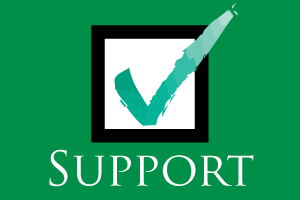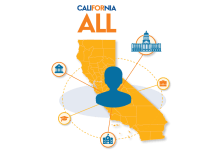 A California Chamber of Commerce-sponsored job creator bill that incentivizes disability access and education passed one Senate policy committee yesterday and will be heard in a second policy committee today.
A California Chamber of Commerce-sponsored job creator bill that incentivizes disability access and education passed one Senate policy committee yesterday and will be heard in a second policy committee today.
SB 251 (Roth; D-Riverside) is a balanced approach between preserving the civil rights of those who are disabled to ensure access to all public accommodations, and limiting the number of frivolous lawsuits threatened or filed against businesses that do not improve accessibility. It passed the Senate Judiciary Committee yesterday and will be considered by the Senate Governance and Finance Committee today.
Access and Education
SB 251 seeks to incentivize businesses to proactively take steps to become accessible by providing them with 90 days from receiving a Certified Access Specialist (CASp) report to resolve any violations identified without being subject to statutory penalties or litigation costs. This proposal will assist businesses that are trying to ensure they are compliant with the law from being subject to frivolous claims or litigation.
SB 251 also provides a limited time period for businesses to resolve minor, technical construction-related standards that do not actually impede access to the public accommodation. Specifically, SB 251 provides businesses with 30 days from the service of the summons and complaint to resolve any alleged violation regarding signage, parking lot striping, and truncated domes. This limited period will provide a business owner the opportunity to devote financial resources to resolving these minor issues before being subjected to statutory penalties and attorney fees.
SB 251 also requires the California Commission on Disability Access to post educational materials for business owners regarding how to comply with California’s construction-related accessibility standards, as well as share that information with local agencies and departments. SB 251 requires landlords to notify tenants as to whether a building has been inspected by a CASp, as well as who is liable for any alleged violations. Notice and education are key components to helping create more accessible public accommodations and limiting frivolous claims or litigation.
Finally, SB 251 creates an additional incentive for businesses to become accessible by providing a tax credit for access expenditures.
Key Vote
SB 251 passed the Senate Judiciary Committee on May 12, 6-0.
Ayes: Anderson (R-Alpine), Hertzberg (D-Van Nuys), Jackson (D-Santa Barbara), Leno (D-San Francisco), Monning (D-Carmel), Wieckowski (D-Fremont).
No Vote Recorded: Moorlach (R-Costa Mesa).
SB 251 will be heard in Senate Governance and Finance today.
Staff Contact: Jennifer Barrera


